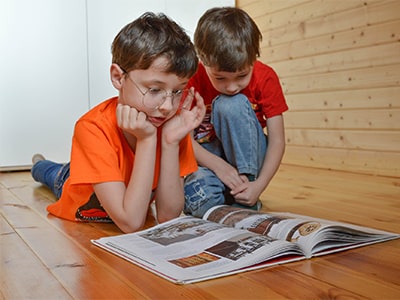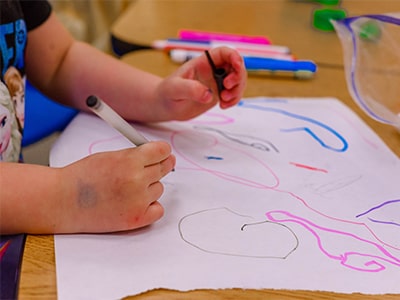The school strives to maintain high academic standards in conformity with the policies and agenda of Central Board of Secondary Education, Delhi to which it is affiliated. Selection of subjects of study and their courses at the primary level is as per the guidelines and design set down by the National Council of Educational Research and Training (NCERT).
South Point School approaches of academic activities to provide stress free, child centred and holistic education to all children without compromising on quality.
At SPS, we emphasize on close integration of online and off-line learning. Students have instant access to information through a well stocked library and digital hookups with internet and online libraries.
NEP 2020 lays particular emphasis on the development of the creative potential of each individual. The curricular and pedagogical structure of school education will be reconfigured to make it responsive and relevant to the developmental needs and interests of learners at different stages of their development, and will therefore be guided by a 5+3+3+4 design consisting of -

Children to spend 5 years in Foundational stage. Foundational level of education will consist of 3 years of Pre-school (Nursery, PPI , PPII) followed by two years of Primary school.(Grades I & II)
The New System incorporates play schools within the realm of, “formal education’, combining Nursery and Preprimary classes with Class I & II.
The method is designed to blur the lines between occupational and academic pursuits, as well as curricular and extra curricular pursuits.
Our Early Childhood Care and Education (ECCE) programme aims to attain the Optimal outcomes in the domains of
3 years in Preparatory Stage
Age – 8 to 11 years

The Preparatory period will continue to emphasize language development and numeracy abilities. The focus will be to acquire competency, experiential, joyful learning to attain the expected learning outcomes.
The Preparatory Stage will comprise three years of education building on the play, discovery, and activity-based pedagogical and curricular style of the Foundational Stage, and will also begin to incorporate text books as well as aspects of more formal but interactive classroom learning, in order to lay a solid groundwork across subjects, including reading, writing, speaking, physical education, art, languages, science, and mathematics.
3 years in the middle stage
Age – 11 to 14 years

The Middle Stage will comprise three years of education, building on the pedagogical and curricular style of the Preparatory Stage, but with the introduction of learning and discussion of the more abstract concepts in each subject. Students will be ready at this stage across the sciences, mathematics, arts, social sciences and languages. Experiential learning within each subject, and explorations of relations among different subjects, will be encouraged and emphasized.
4 years in secondary stage
Age – 14 to 18 years

The Secondary Stage will comprise of four years of multidisciplinary study, building on the subject-oriented pedagogical and curricular style of the Middle Stage, but with greater depth, greater critical thinking, greater attention to life aspirations, and greater flexibility with student choice of subjects in Grade XI & XII.
The focus in this stage is the transition to a multidisciplinary system in which students will be able to choose from a range of combination based on their talents and interests rather than being firmly classified into Arts, Science, Commerce. Emphasis is on critical thinking and adaptability.